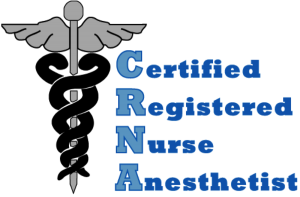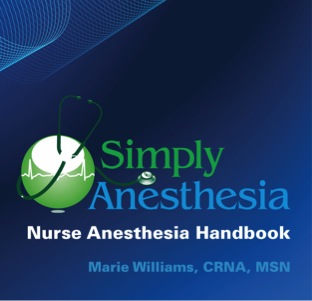Dec 12
9
How to Ace the Anesthesia Interview
![]() How to Ace the Anesthesia School Interview
How to Ace the Anesthesia School Interview
Applying to Nurse Anesthesia school and completing your years of ICU nursing are just the beginning. As most all CRNAs know, the interview counts for 80% of your admission evaluation. Each school wants the most talented students who will complete the program successfully and pass the certification exam on the first try. The interview is your opportunity to shine! The importance of this moment cannot be understated. Be prepared and practice, practice, practice!
There are usually three segments to the interview, allowing the interviewers to see you in varying situations. First, there is the personal interview. Some schools will have 6-8 staff and students waiting in a room to review your CV, ask about your clinical experience and determine your potential for success in their program. This can be the most nerve wracking for the interviewee. Practice answering interview questions with anyone who will stand still long enough to listen to your response. While the list below is not an exhaustive list of questions, they will get you started as you prepare.
1. Why do you want to become a CRNA?
This is probably the most challenging question for most of us. While the expected answer might be the financial stability offered by a career in Nurse Anesthesia, most school directors want to hear a deeper, more considered answer that shows your commitment to the profession and your integrity. Nurse Anesthesia is a wonderful profession, but it is such because so many of those who have gone before you have remained committed to building the foundation for a strong, safe and autonomous profession. Dig deep and formulate an answer that reflects your commitment to the practice and art of anesthesia in an autonomous setting.
2. What makes you a great applicant?
This is your time to shine. No one knows you better than you and this is your opportunity to let the interviewers know why you’ll be a fabulous SRNA. Discuss your passions, commitment to patient care, and give examples of when you went above and beyond all others for the betterment of a patient or a department. Keep it direct and brief, but definitely toot your own horn.
3. Why do you want to go to a particular program / why this school?
Research, research, research! Know the details of your chosen program inside and out.
Find out passing rates, costs, student satisfaction, instructor qualifications, whether or not their leadership has doctoral degrees and even how many clinical sites they offer the anesthesia students. Each school is different and you should know yours!
4. What was your most challenging clinical day at work?
We all have days where we wonder if we did enough or if we did everything right. Review such a day with the interview team but present it in such a way as to show your skills. How did you handle it when your patient coded? Did you participate when the code team arrived or did you step aside and let them run the code? Challenging patients develop our clinical skills. Use this time to highlight your clinical skills in a real-world situation.
5. How do you maintain your own moral compass?
Unlike many other professions, Nurse Anesthesia is wonderfully autonomous. While this provides a very stimulating clinical environment for practice, it can offer opportunities for missed documentation, medication errors or worse. The interviewers want to know where your personal integrity comes from. How do you maintain your own moral compass in your practice?
6. They may ask you a scenario question where you are the clinical nurse preceptor and you are working with a brand new graduate nurse on your unit. The graduate nurse hangs an insulin drip instead of a labetalol drip and opens it wide, giving the patient a 100 unit bolus of insulin. When the GN figures out what he did, he stands in the corner, unsure of what to do. What do you do?
In your answer, they want you to put the patient first. Do you talk the graduate nurse through the mistake, taking time to write up the error or do you address the patient and their care? Fairly straight-forward, however you would be surprised how many interviewees focus on reprimanding the graduate nurse!
 7. How do you handle stress in your life?
7. How do you handle stress in your life?
Anesthesia school is stressful. You’ll push yourself to limits you never thought you could reach. You should have tried and true ways to relieve that stress and maintain your sanity. The interview committee wants to hear that you are capable of handling stressful situations in healthy ways.
In addition to the interview, many schools are also having the applicants complete a written test covering such topics as drug calculations, medication regimens and ICU scenarios. Know dosing, use and common adverse effects of all drugs used on your unit such as antiarrhythmics, pressors and vasodilators.
Finally, as if all of this wasn’t enough, there are a number of schools who will place students into a simulation lab, where ACLS-like clinical scenarios are presented and the applicants work through the clinical presentation and treat the ‘patient’. This can be nerve wracking and really push the applicant over the edge. They want to see how you handle a ‘real-life’ stressful situation in the operating room. Remember to know your ACLS algorhythms very well and apply them to the patient. Stay focused on patient care and you will do fine.
Getting accepted into anesthesia school is a wonderful accomplishment and the beginning of an intense journey for you. Be yourself, be knowledgeable and practice, practice, practice!
 Email us! Get your copy today.
Email us! Get your copy today.